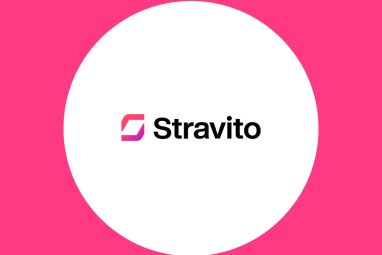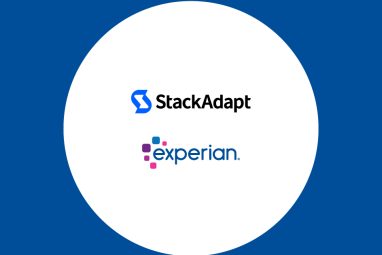Scott Brinker and Frans Riemersma Roll Out the State of Martech 2025 Report
The 2025 State of Martech report reveals slowing growth, record churn, and a shift toward AI integration and stack consolidation, marking a new era of strategic maturity in marketing technology.
Topics
What to Read Next
- Stravito Introduces Deep Research Agent in AI Assistant
- StackAdapt Partners with Experian to Boost First-Party Data Activation
- Later Introduces Later 360, a Unified Reporting Suite
- Audion Unveils Audion AI to Deliver Outcome-Driven Audio Advertising Campaigns
- Ramco Systems Launches Chia, a Conversational AI Agent

The 2025 edition of the State of Martech report, released this week by Scott Brinker and Frans Riemersma, outlines a year marked by slowing growth, rising churn, and a maturing approach to marketing technology strategy. The updated martech landscape map now includes 15,384 tools, up from 14,106 in 2024 — a 9% increase, which is modest compared to the surge seen during the generative AI boom of 2023.
However, the report notes a significant development: 1,200 tools were removed, the largest year-over-year (YoY) reduction in more than three years. This churn reflects a broader recalibration in the martech space, where growth continues, but at a more sustainable and selective pace.
“The average tech stack grew slightly last year — by just 2.2%,” said Scott Brinker. “But among mature marketing teams, that growth was tempered by tighter integration and a focus on AI-native capabilities aligned with existing platforms.”
AI Integration Gains Ground
The accompanying AI & Martech Stack Survey reveals how marketing operations teams are adopting artificial intelligence at scale. According to the survey:
- 87.5% use AI assistants like ChatGPT and Claude
- 69.8% use AI-driven workflow tools such as Zapier, Make, and n8n
- 54.2% have adopted embedded co-pilots from platforms like Microsoft and GitHub
- 44.8% are actively experimenting with autonomous AI agents
The report outlines two key modes of AI adoption: inside-out, where existing platforms incorporate AI features, and outside-in, where entirely new AI-based layers — such as agents and workflow tools — are added to tech stacks.
Four Key Evolutions in Martech
This year’s analysis focuses on four structural changes in how organisations approach martech:
- The evolving architecture of marketing technology stacks
- The growing role of custom-built software in the “hypertail”
- The operational shift driven by AI agents and automation
- Changing marketing roles as AI takes over specific tasks
These evolutions point to a broader trend toward modularity, composability, and efficiency in martech operations.
Consolidation Without M&A
While some consolidation is occurring, the report clarifies that most of the churn came from shutdowns, not mergers or acquisitions. Many of the removed tools were over five years old — suggesting that the wave of genAI startups from 2023 remains active, at least for now. Notably, some discontinued tools had high customer satisfaction ratings, indicating that even well-reviewed products are vulnerable if they lack clear market fit or sustainable business models.
The report includes interviews with executives from six martech companies — GrowthLoop, Hightouch, MetaRouter, MoEngage, Progress, and SAS — offering insights into how providers are adapting to shifting customer needs and advancing their AI capabilities.
The findings suggest a sector entering a new phase: less focused on sheer tool volume and more oriented toward value, integration, and agility. While the explosive growth of the past decade may be tapering, the report underscores that innovation in martech — particularly in AI — continues to reshape the landscape.
Scott and Frans describe this as a transition from “boom” to “balance,” with marketers now optimising for cohesion and clarity in a market that has expanded by over 10,000% since 2011.
Further exclusive stories from Frans Riemersma are expected in the coming weeks.
Stackies Awards
Now in its 11th year, the Stackie Awards continue to spotlight the creativity and strategic thinking behind modern marketing stacks. Organized by Scott Brinker and Frans Riemersma, the contest invites marketers to submit a single slide visualizing how they organize and conceptualize their martech tools. While a few standout entries receive trophies, every submission contributes to a broader goal: knowledge-sharing within the martech community. This year, 16 entries led to a $1,600 donation to UNICEF — a gesture underscoring the event’s collaborative spirit and industry-wide impact.
Below is the list of this year’s Stackie Award winners.
Lifetime Achievement Winners: Demandbase, ESRI Martech, Banco Itaú, SAS, and Verizon Business
2025 Winners: Nationwide, Otto Market, Springer Nature, Stack Island, and Vendasta









































































































